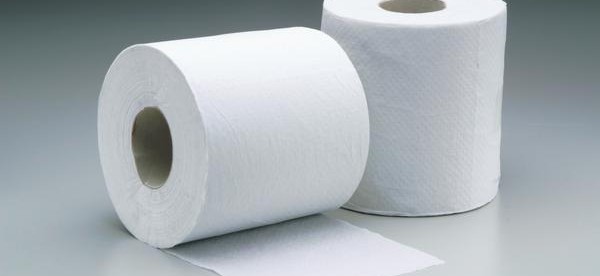A Run on the Runs

The Wikipedia entry of Harold V. Froehlich is pretty short, consisting, basically, of one paragraph listing out his political resume. He was a lawyer, a state assemblyman, and then for one term, a Congressman from Wisconsin. He didn’t do much in his two years in office (understandably given the brevity of his service); all Wikipedia mentions is that he voted to impeach Richard Nixon. But it doesn’t highlight his crowning achievement as a Representative — one which he probably doesn’t want credit for.
A few months after Froehlich took office, Americans became very familiar with shortages. The 1973 oil crisis meant that lines at the gas station were common if not expected, and for the first time since World War II, American leaders turned toward rationing as a way to combat demand which outstripped supply. As Priceonomics noted, this spread to other goods: “gasoline, electricity, and onions [apparently?] were heavily reported as goods and services that were in limited supply, and Americans cultivated a ‘shortage psychology.'” If people heard that a product could become unavailable for a while, consumers had a habit of buying what they could and storing whatever was reasonable.
On November 16, 1973, Representative Froehlich issued a statement on which could have provoked such a response — had anyone noticed. Per the New York Times, Froehlich noted that the Government Printing Office was running low on supplies of paper — price controls, he argued, were incentivizing paper pulp manufacturers to export their product rather than sell it locally. But his warnings went unheard so, about a month later, he ratcheted up the rhetoric.
Froehlich noticed that the Federal Government’s National Buying Center had not purchased the amount of toilet paper that it was supposed to; in fact, it had missed the mark by perhaps fifty percent. So on December 11, 1973, Froehlich’s office issued the statement (edited by the Times):
The United States may face a serious shortage of toilet paper within a few months…. I hope we don’t have to ration toilet tissue…. A toilet paper shortage is no laughing matter. It is a problem that will touch every American.”
And this time, the press took notice. Even though the statement, clearly, was speculative, the story of a run on toilet paper was too good to pass up (or report accurately). And, just over a week later, the Tonight Show’s Johnny Carson made light of the comment in his opening monologue. Carson, on December 19th, per Priceonomics, told an estimated 20 million viewer the following:
You know, we’ve got all sorts of shortages these days. But have you heard the latest? I’m not kidding. I saw it in the papers. There’s an acute shortage of toilet paper!
(If you want to hear Carson deliver the last line of the joke, that link goes to a video excerpt on Vine.)
Many of Carson’s fans and viewers took his quip seriously, buying up toilet paper before they couldn’t anymore. Various newspaper reports tell the same story, throughout the nation: for roughly a month, consumers bought so much toilet paper that retailers couldn’t keep it in stock, even after nearly doubling the price. Demand spiked and supply couldn’t catch up. America was in a toilet paper panic with no end in sight — and as a result, the joke became reality: American suffered an actual shortage of TP. Manufacturers of toilet tissue simply couldn’t keep pace, and ultimately, inventories fell to near-zero.
Without the ability to buy more toilet paper, those who stocked up in case of emergency ended up using their stored toilet paper, and the market returned to normal. Carson, for his part, apologized for the misunderstanding. Froehlich didn’t, but it really wasn’t his fault anyway.
Bonus fact: In 1976, a portable toilet company had the really smart idea of using Johnny Carson’s fame to help sell their product, and named it the “Here’s Johnny!,” a less-than-subtle reference to the catchphrase used by Carson’s sidekick, Ed McMahon, when introducing Carson to the studio audience. Carson, understandably, was not amused and sued, claiming it violated his right of publicity. At first, the court found in favor of the port-o-potties, but on appeal, Carson prevailed.
From the Archives: Proto-TP: What people used for toilet paper before there was toilet paper.
Take the Quiz: Unscramble these synonyms for “toilet.”
Related: Prank toilet paper. It still works, don’t worry.
